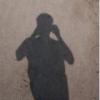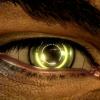I am just interested if there's any drugs that actually kill the fear response in the brain?

Any drugs that actually kill fear?
#1
Posted 08 November 2012 - 06:25 PM
I am just interested if there's any drugs that actually kill the fear response in the brain?
#2
Posted 08 November 2012 - 07:04 PM
People who get both of their amygdalas totally removed experience zero fear, but the same goes with all other emotions.
#3
Posted 08 November 2012 - 07:29 PM
So yeah, alcohol is truly amazing against anxiety, at least from my personal experience, and it's much much harder to overdose. From the many dozens medications I experimented with over the last couple of years (and there were all sorts of them, including many highly controlled substances), none had remotely the anxiety eliminating effect alcohol has at the right dosage. Alcohol is very unique in this respect.
Anyhow, eliminating fear shouldn't be on anyone's to-do list as long as one wants to live for some more years.
Fun topic, but this discussion will most likely lead to nowhere.
#4
Posted 08 November 2012 - 08:30 PM
Creatine help a lot for fear .
Can high testosterone help lower fear to zero?
#5
Posted 08 November 2012 - 08:56 PM
#6
Posted 08 November 2012 - 09:02 PM
http://www.ncbi.nlm....pubmed/21525267
http://www.ncbi.nlm....pubmed/20381628
http://www.ncbi.nlm....pubmed/20102667
And D-Cycloserine:
http://www.ncbi.nlm....pubmed/15466301
#7
Posted 08 November 2012 - 09:10 PM
#8
Posted 08 November 2012 - 09:37 PM
I guess it really depends on the person... I tried both propranolol and atenolol, and I can assure you, propranolol gives me a much bigger anxiety reduction. Can you compare propranolol with (for example) benzos? Of course not... But what I mean is that propranolol can reduce fear by "detaching" the recall of the traumatic experience from the feelings associated with it. I think that's very useful for example in social phobia.Propranolol will mainly supress the phyical symptoms of anxiety, but doesn't do much for the mental aspect. Propranolol really is far away from being an anxiety eliminator although it's tremendously helpful for e.g. supressing panic attacks and many pysical signs of anxiety.
However, as you correctly stated before, fear is fundamental for survival, so completely eliminating it cannot be a good thing (e.g. It's good to be afraid of jumping from a cliff).
Edited by ricca91, 08 November 2012 - 09:37 PM.
#9
Posted 08 November 2012 - 10:27 PM
#10
Posted 08 November 2012 - 11:14 PM
#11
Posted 09 November 2012 - 12:20 AM
#12
Posted 09 November 2012 - 01:05 AM
Modafinil induces fear and anxiety so no, that's not an option.
Weird that pharma hasnt come up with a drug that would do this.
#13
Posted 09 November 2012 - 02:20 AM
#14
Posted 09 November 2012 - 02:23 AM
#15
Posted 09 November 2012 - 03:39 AM
Methylene Blue has fear extinction properties
Where did you learn this? can you point to the thread or link?
#16
Posted 09 November 2012 - 05:11 AM
Methylene Blue has fear extinction properties
Where did you learn this? can you point to the thread or link?
http://www.ncbi.nlm....pubmed/17011803
#17
Posted 09 November 2012 - 06:37 AM
As such, beta-blockers are the answer to the OP's question.
#18
Posted 09 November 2012 - 10:50 AM
The fear or 'fight-or-flight' response is mediated by the agonism of beta-adrenoreceptors. Hence the spike in sympathomimetic activity and the ensuing adrenaline rush one experiences when exposed to a perceptibly 'dangerous' or 'frightening' stimulus.
As such, beta-blockers are the answer to the OP's question.
As I said above, beta blockers will help with many (not all) of the physical manifestations of anxiety, but do little or nothing for the mental part. Propranolol is an exception here because it crosses the blood brain barrier and influences GABA levels amonst other things. However, this is not nearly enough to talk about fear elimination here.
#19
Posted 09 November 2012 - 11:53 AM
I can also testify for this. The effect is not too large, but its definitely significant and its the main reason for which I am taking it right now (well technically to reduce anxiety at work).Methylene Blue has fear extinction properties
Where did you learn this? can you point to the thread or link?
#20
Posted 09 November 2012 - 01:43 PM
#21
Posted 09 November 2012 - 08:52 PM
#23
Posted 10 November 2012 - 01:32 AM
Propranolol:
http://www.ncbi.nlm....pubmed/21525267
http://www.ncbi.nlm....pubmed/20381628
http://www.ncbi.nlm....pubmed/20102667
And D-Cycloserine:
http://www.ncbi.nlm....pubmed/15466301
Propranolol, yes.
As Seinfeld pointed out, the two major fears are public speaking and death, in that order. And from personal experience, propranolol completely eliminates the fear of public speaking. For death...I'll let you know.
#24
Posted 11 November 2012 - 04:59 PM
Seems like I need to buy some of this stuff (magnesium-l-threonate). Do you guy's find it worth the price?
Edited by Brainfogged, 11 November 2012 - 05:00 PM.
#25
Posted 11 November 2012 - 07:40 PM
drugs seem to be only effective at reducing baseline anxiety and inhibition to an extent, but never enough to make someone do something incredibly out of their personality, if fear is eliminated "entirely" either the dosage is so high its unrealistic in the long term, debilitating or euphoric
the secret to this question is fear is irrevocably linked with pain and most of us are wired to behave in certain ways due to our pain conditioning, so pain killers is the answer to remove that conditioning, though i'll leave it at that... : /
abnormal social anxiety usually stem from other issues that are not fear btw so if you have ADD and you have social anxiety, its unlikely you are actually fearful of people, but rather you are unable to deal with people the way they deal with you, not from actually having some kind of condition, same with people on the autistic spectrum and so on and so forth. In these cases fixing the root either medically or by training will clear the abnormal social anxiety.
in any case just being fearless is very useful but at the same time without the right guidance/advice/training it can often make things worst not better.
#26
Posted 12 November 2012 - 06:40 PM
That doesn't sound like 'too much rationality' nearly as much as it sounds like motivations out of balance. Without compulsions (affective or otherwise) in play, a rational person could easily decide that a limit needed to be placed on time spent thinking about where to eat lunch, and that the best possible call would be to go with whatever seemed most favorable after that period of consideration.Read Damasio's book Descartes' Error. It's about people with brain damage that sort of killed their emotions and they had big problems in everyday decisioning - precisely because they were too rational. For example, one patient couldn't decide where to go to lunch - he would be thinking about each option for hours ... But this is not actually about killing fear. There are also some examples regarding amygdala damage after which people can't recognize or feel fear - but it doesn't affect their decisioning or "rationalizing" AFAIK.
'Course, killing emotions selectively might well result in unbalanced motivations. Still, I think a dedicated rationalist with developed decision-making skills would deal with the absence of one or the other emotion far better than someone whose decisions will just fall back to the next most prominent motivation.
Edited by Raza, 12 November 2012 - 06:40 PM.
#27
Posted 12 November 2012 - 07:22 PM
That doesn't sound like 'too much rationality' nearly as much as it sounds like motivations out of balance. Without compulsions (affective or otherwise) in play, a rational person could easily decide that a limit needed to be placed on time spent thinking about where to eat lunch, and that the best possible call would be to go with whatever seemed most favorable after that period of consideration.Read Damasio's book Descartes' Error. It's about people with brain damage that sort of killed their emotions and they had big problems in everyday decisioning - precisely because they were too rational. For example, one patient couldn't decide where to go to lunch - he would be thinking about each option for hours ... But this is not actually about killing fear. There are also some examples regarding amygdala damage after which people can't recognize or feel fear - but it doesn't affect their decisioning or "rationalizing" AFAIK.
'Course, killing emotions selectively might well result in unbalanced motivations. Still, I think a dedicated rationalist with developed decision-making skills would deal with the absence of one or the other emotion far better than someone whose decisions will just fall back to the next most prominent motivation.
I think that subtleties of reality and behavior are faced with our "emotional responses" much more than we tend to admit. Rationality is interspersed with emotions all throughout, "spiced" with them if you will. So I doubt that someone without emotions whatsoever (a "forced" rationalist) would be able to cope with life in a functional way. Isn't this what part of being autistic is about?
However, this thread is --I think-- about diminishing fear to become more functional, not killing it altogether. I think we all experience how crippling fear can be and how it can compromise our performance or enjoyment; I think that finding a way to curb our fear response in situations where fear is not rational (public speaking, social situations, etc) would be extremely valuable.
To that topic, last week I had to give a presentation in front of 70 potential investors. A lot was at stake (the future of my business) and I knew I was going to be nervous. I found 3 things that (I think) worked:
- Acknowledging that my body was going to go berzerk (strong and fast heart-beat, neck tension, nervous twitches, etc) and intentionally dismissing them as negative signs.
- Realizing that things would not be perfect, that mistakes might be made and accepting that "still, the outcome can be good"
- 0.1mg of Klonopin (that is way under the smallest recommended dose, I can titrate because I use a liquid, not available in the US)
- 1g holy basil
Of course, I deally I would like to teach myself to feel comfortable in this kind of setting, but If I had propanolol, I would have taken it. I'll try to get a hold on some of it before my next presentation. I think that coming across as "relaxed" and not nervous has considerable impact in your audience, and thus worth the extra pill
#28
Posted 12 November 2012 - 08:17 PM
I used to have ridiculous mental anxiety about perceived loss of legacy, of self (death, especially agonizing death), and sudden loss of long-term gains. I took the cognitive route to ridding myself of these (for the most part; they sometimes come back during high stress situations, but they're much easier to manage now).
Try googling samurai meditation on death. The whole point was for a samurai to become so desensitized to the idea of loss of self so
as to be able to charge into fray at a moment's notice and save face for his master by dying honorably. I spent a lot of time meditating and imagining with great vividness various scenarios of dying that I feared the most. I also watched accounts of near death experiences where people usually described them as very peaceful (i.e. shock sets in and there is no pain any more). Also, think about falling asleep and that death really feels like being completely unconscious (feels like nothing at all). Also, the coming age of AI was another idea I used. For example, there are pretty good chances that the human era will have ended by the year 2100. Given that, it seems pretty strange, maybe even silly to worry about any kind of legacy that one feels it is important to leave behind.
However, fear of death is not the ultimate fear. The ultimate fear is the loss of something of perceived value. For this, I have a method that emphasizes a kind of non-existence of self. Think about how the sense of who you are is created from moment to moment in a brain. And when you go to sleep, it momentarily shuts off. So you see, there is really nothing there to hold on to. It is all a simulation, and the only choice to be made is to make it a pleasant simulation shared with other fellow simulacra. And that includes not worrying about outcomes excessively, because ultimately, outcomes don't matter The paradox is that life feels better when we feel that outcomes matter, but not so good when we overemphasize their importance.
Also, no matter what happens in anyone's life, the universe will go on, and if the eternal chaotic theory of inflation is anything to shout about, then there are infinite universes that will go on forever, and therefore there is an infinite number of universes that are identical to this one, with people just like you having the same lives as your own.
A movie that helps with letting go is Fearless (1993, with Jeff Bridges).
This ending clip from the movie Sunshine also serves as a welcome reminder that you are not a separate thing, but are an infinitesimal part of the Happening that is this so-called reality. And no matter what happens, everything will be just as it was going to be. There is no 'free will' as such, and you are simply happening along with everything else.
I could go on and on about this, but I'm getting the nagging feeling that I'm rambling or being off-topic, so let me know if that's the case.
#29
Posted 13 November 2012 - 03:02 PM
However, fear of death is not the ultimate fear. The ultimate fear is the loss of something of perceived value. For this, I have a method that emphasizes a kind of non-existence of self. Think about how the sense of who you are is created from moment to moment in a brain. And when you go to sleep, it momentarily shuts off. So you see, there is really nothing there to hold on to. It is all a simulation, and the only choice to be made is to make it a pleasant simulation shared with other fellow simulacra. And that includes not worrying about outcomes excessively, because ultimately, outcomes don't matter The paradox is that life feels better when we feel that outcomes matter, but not so good when we overemphasize their importance.
Also, no matter what happens in anyone's life, the universe will go on, and if the eternal chaotic theory of inflation is anything to shout about, then there are infinite universes that will go on forever, and therefore there is an infinite number of universes that are identical to this one, with people just like you having the same lives as your own.
A movie that helps with letting go is Fearless (1993, with Jeff Bridges).
This ending clip from the movie Sunshine also serves as a welcome reminder that you are not a separate thing, but are an infinitesimal part of the Happening that is this so-called reality. And no matter what happens, everything will be just as it was going to be. There is no 'free will' as such, and you are simply happening along with everything else.
I always interpreted this scene differently, I thought it was about man was so powerful he can restart the sun...like for a moment the energy of the star flows into the bomb, and behind him is his invention the artificial energy bomb designed to restart the sun (mankind's artificial technology hence the organised particles of energy designed like a formula vs the raw nature of the suns organic energy) (hence the scene depicting him in the middle between the bomb's blue energy and the sun's orange energy), he happens to be standing between the two and yes it is mean to be connected to earlier bits on the film where he was referring to it as beautiful and he keeps dreaming the surface of the sun. In fact the most interesting part of the film the first half is basically them getting obsessed with the idea of being bathed by sunlight, I think somehow the film gets lost when captain pinpacker starts killing people like a bad slasher film, but the film saves itself with this awesome scene.
So for me when he is touching the sun, I think its meant to symbolise that his technology/invention has allowed him to do the impossible "feel the surface of the sun" for a brief moment when everything is collapsing, time/gravity as well.
Back on the topic of fear: I think most fear is actually social conditioning "as mentioned in my last post", some cultures are more conservative for example. I think what you are saying about perceived value makes sense, but i'm not reading it that deep. I think its about control, acting in line with social conditioning is meant to lead to rewards, but doesn't really, acting in line with social conditioning is meant to control others to reward you with the way society should treat everyone, thats why people are frustrated/hateful when they "act in fear" but don't get what they want. In regards to ego? I think a lot of ego is linked with insecurities, despite western culture seeming to frame self confidence with success alot of it seems to come with the western (modern) way of having to live up to impossible ideals.
#30
Posted 13 November 2012 - 05:27 PM
You touched upon something important, I think, in terms of ego and fear. I highly recommend the book The Birth and Death of Meaning by Ernest Becker. In it he talks about how the ego grows as the need to handle stress and trauma increases. The theory is, then, that the more abuse a person takes, the bigger their ego seems to get, in order to handle all that stress. It seems to bear some grain of truth, I think. For example, narcissists are said not to actually have an over-inflated sense of self-esteem, but to have a very poor sense of self-esteem that they then maintain by obtaining narcissistic supply from other people, or by viewing themselves as 'better' than others in some fundamental way (and not with a healthy degree of humility). And at the bottom of all that is usually a hurt child who did not get proper attention and love.
And speaking of self-esteem, I generally find that, while it obviously feels good to achieve goals and expand one's personal boundaries, tying all of one's self-esteem to external things and accomplishments is like building a house on sand. What happens when the outcomes one expects don't happen? Then one is crushed, or one creates feel-good delusions of one's imagined superiority despite evidence to the contrary.
To me, a safer source of self-esteem is the state of how one actually is, rather than what one accomplishes. Every second there are great lengths of DNA being synthesized in one's body, neurons are firing at blinding speeds, the circulatory system is churning away, and millions of things are happening, including the very creation of the sense of there being someone, and of there being a world apart from that self. And to me, the fact that all of that is happening inside me is far more amazing than anything that I could ever do that society might deem as significant or praiseworthy. Anyway, it's just one way to go about divorcing one's self-esteem from external expectations. Having said all that, it's still great to get deserving praise and recognition for one's works.
Cheers.
Also tagged with one or more of these keywords: fear+drug, anxiety, fear
Science & Health →
Medicine & Diseases →
Vorinostat - Anyone have any experience/know a source?Started by JosephPC , 25 Nov 2024 |
|

|
||
Science & Health →
Brain Health →
Started BuspironeStarted by Galaxyshock , 13 Nov 2024 |
|

|
||
Science & Health →
Brain Health →
Cannabigerol (CBG) Reduces Anxiety and Improves MemoryStarted by Galaxyshock , 03 Aug 2024 |
|

|
||
Round Table Discussion →
Business →
Retailer/Product Discussion →
Strange Temporary Cure From NiacinStarted by basebolt , 13 Apr 2024 |
|

|
||
Science & Health →
Brain Health →
OCD or just anxiety?Started by Galaxyshock , 09 Mar 2024 |
|

|
20 user(s) are reading this topic
0 members, 20 guests, 0 anonymous users

























































